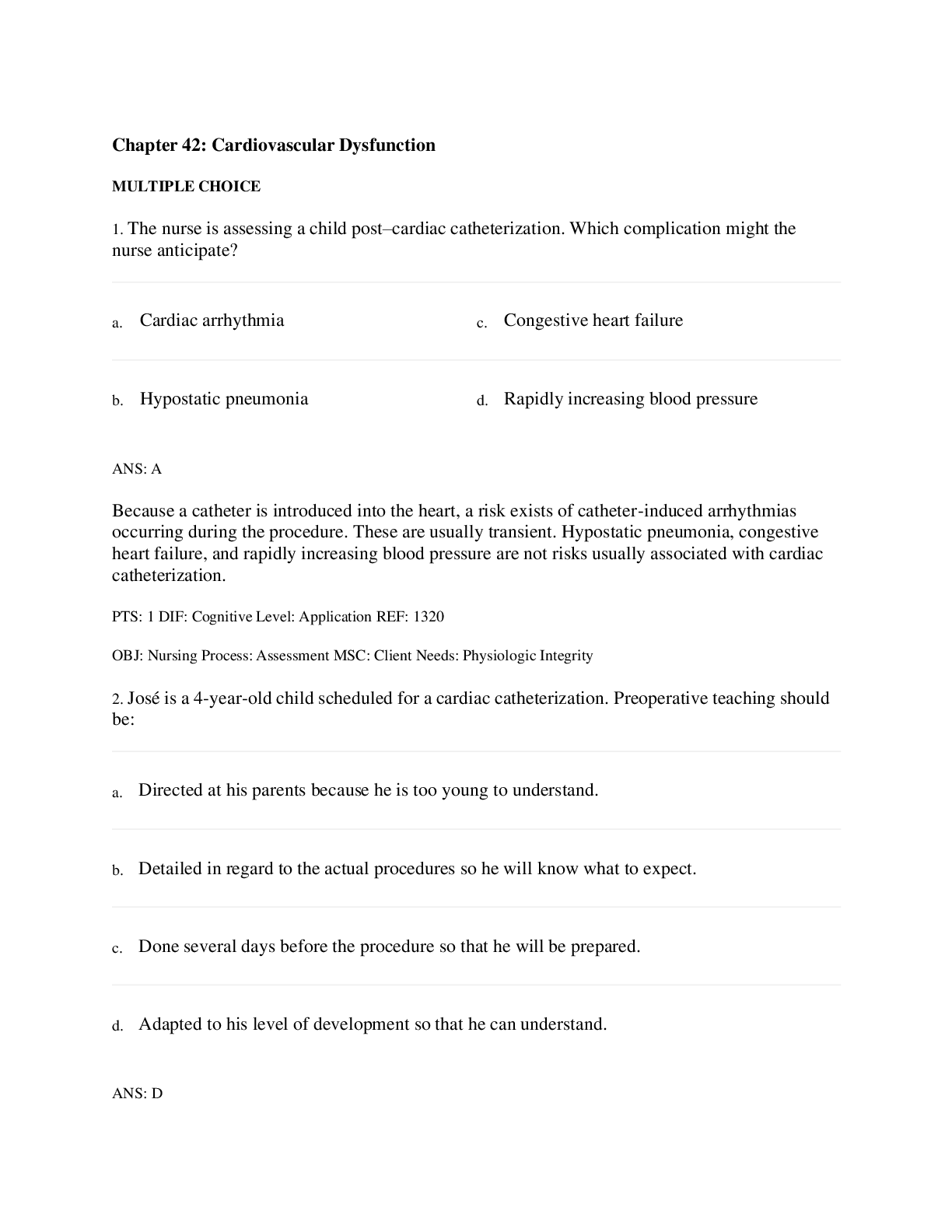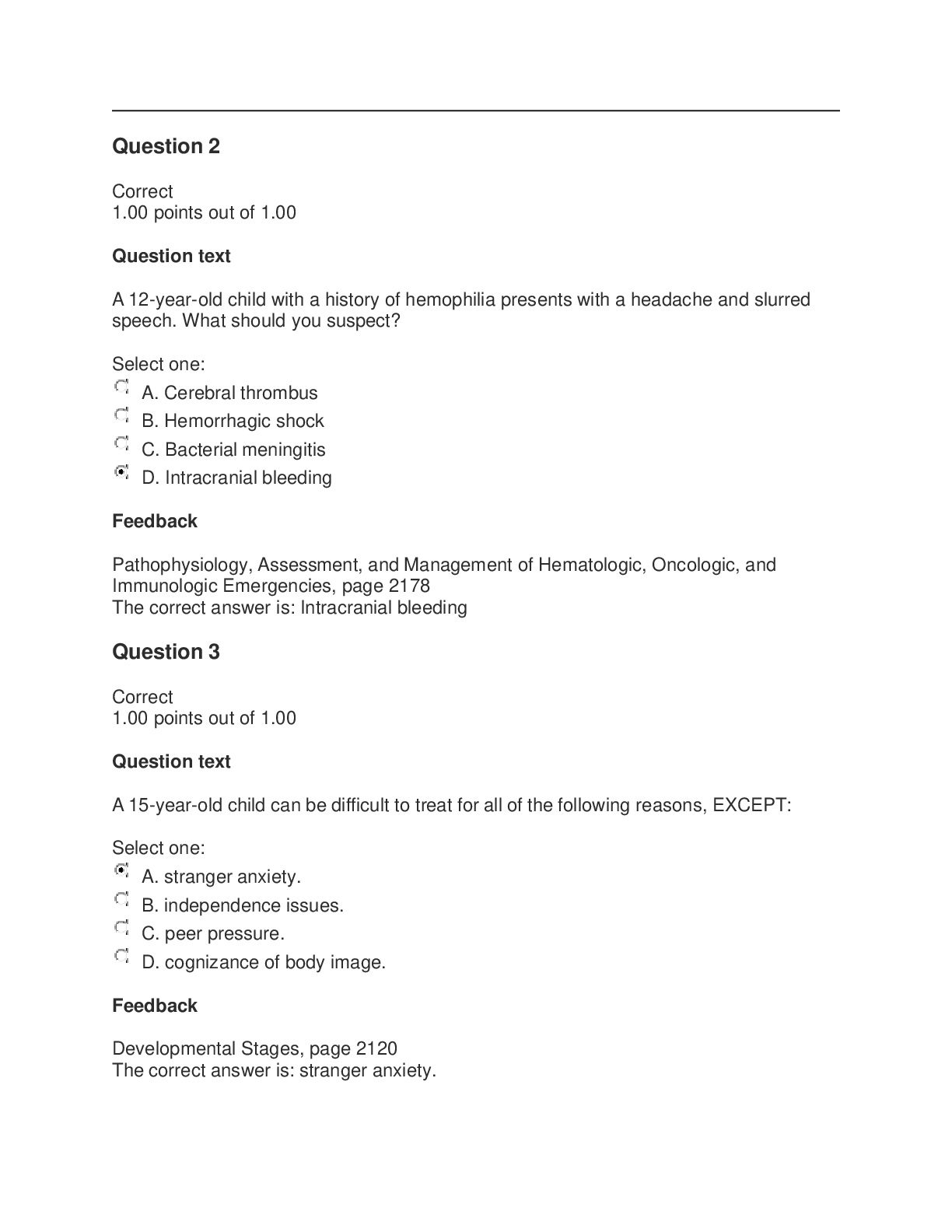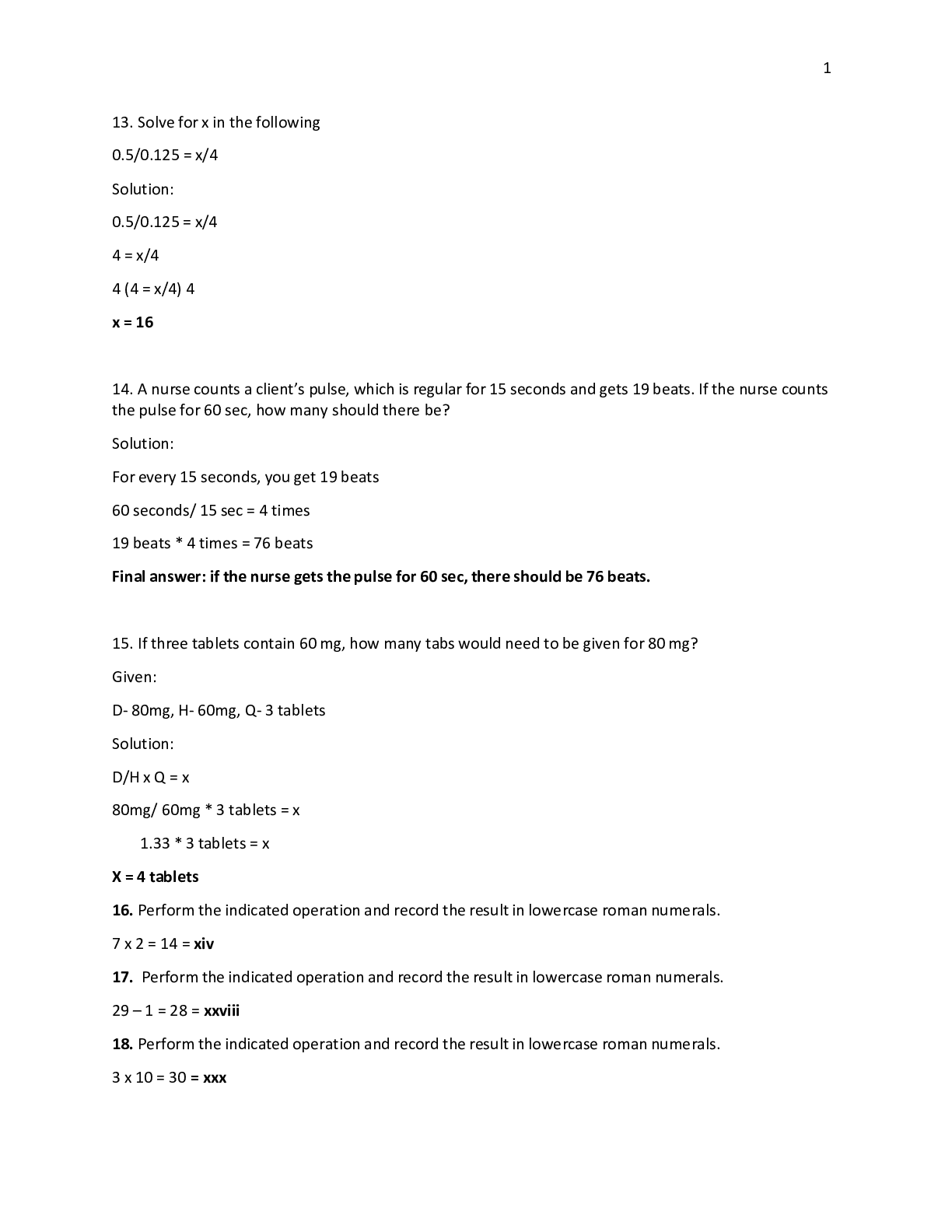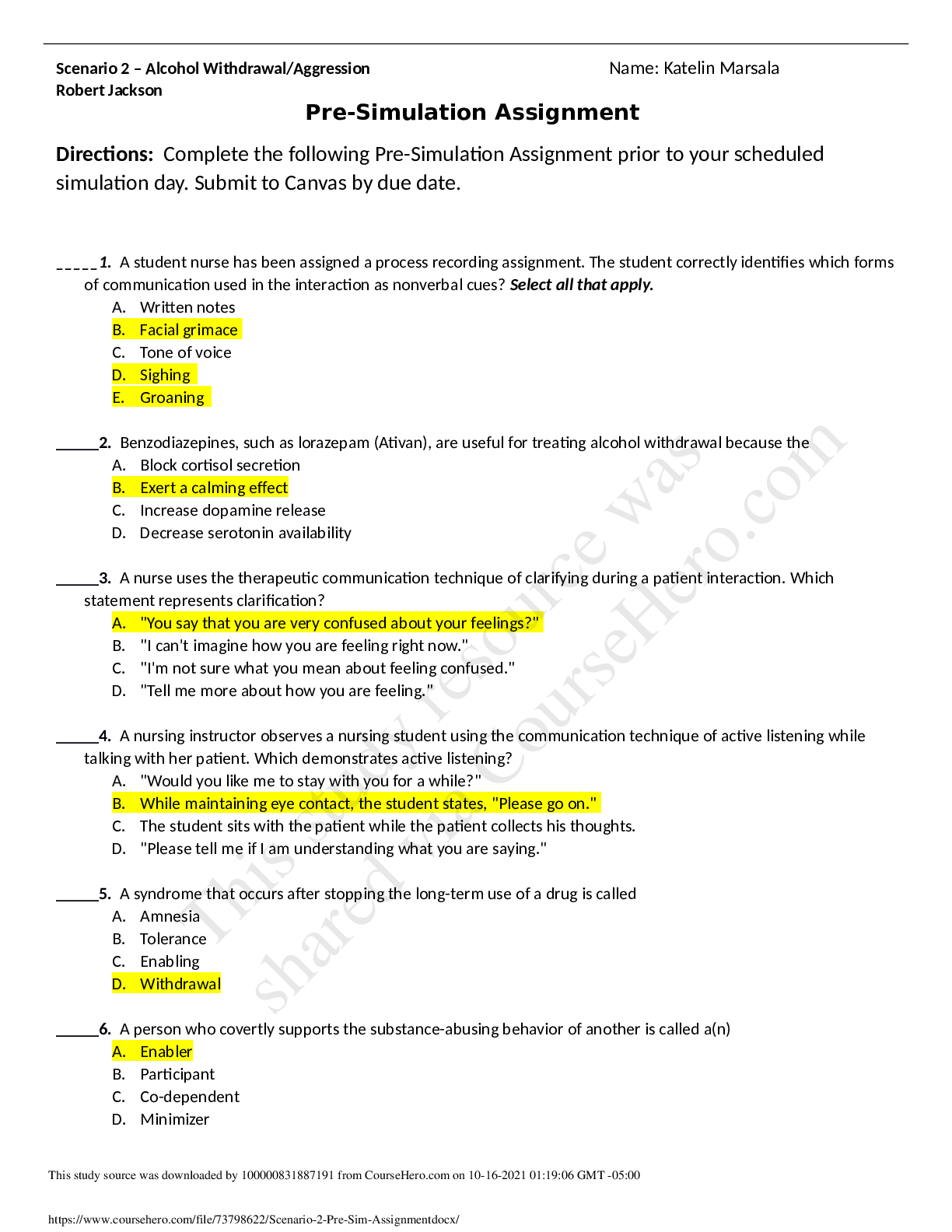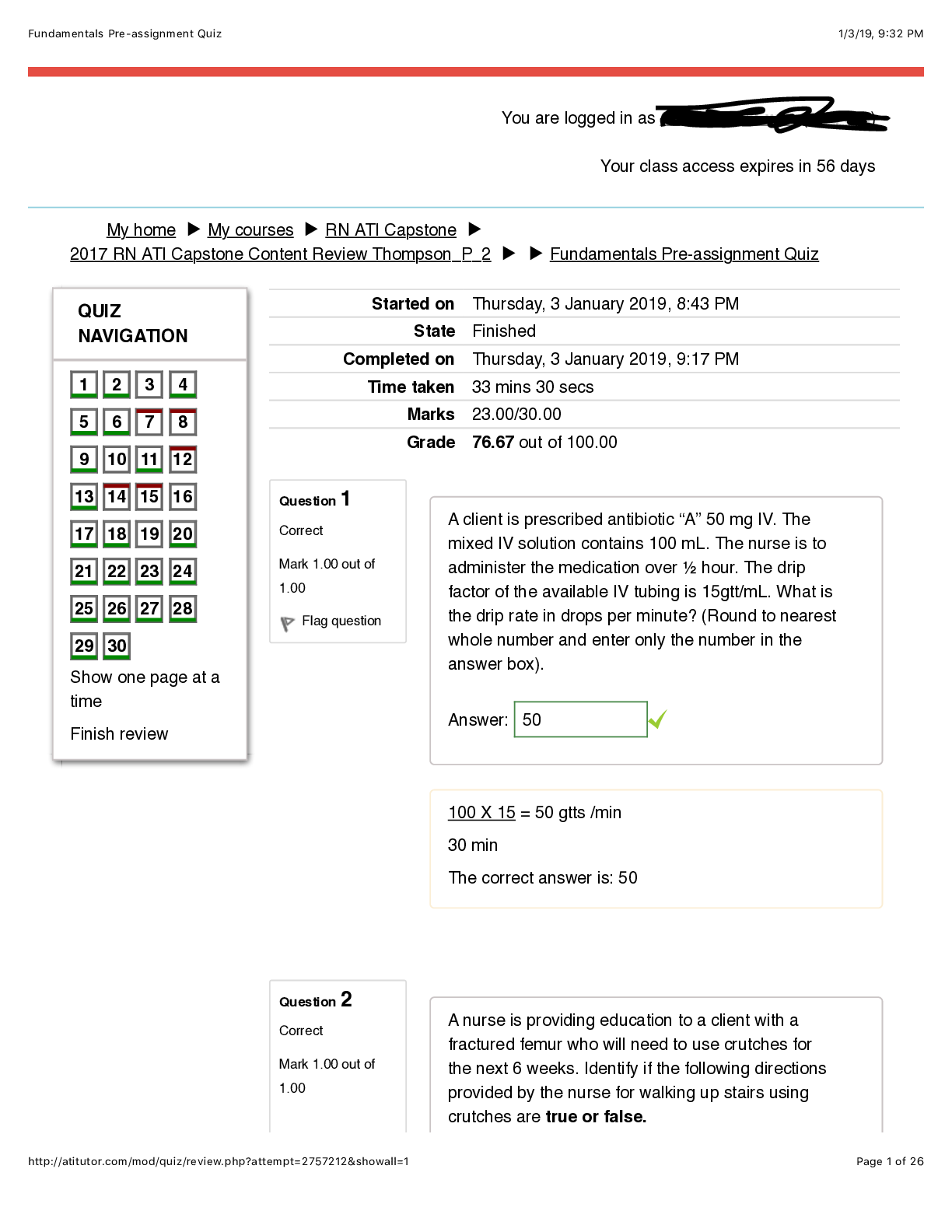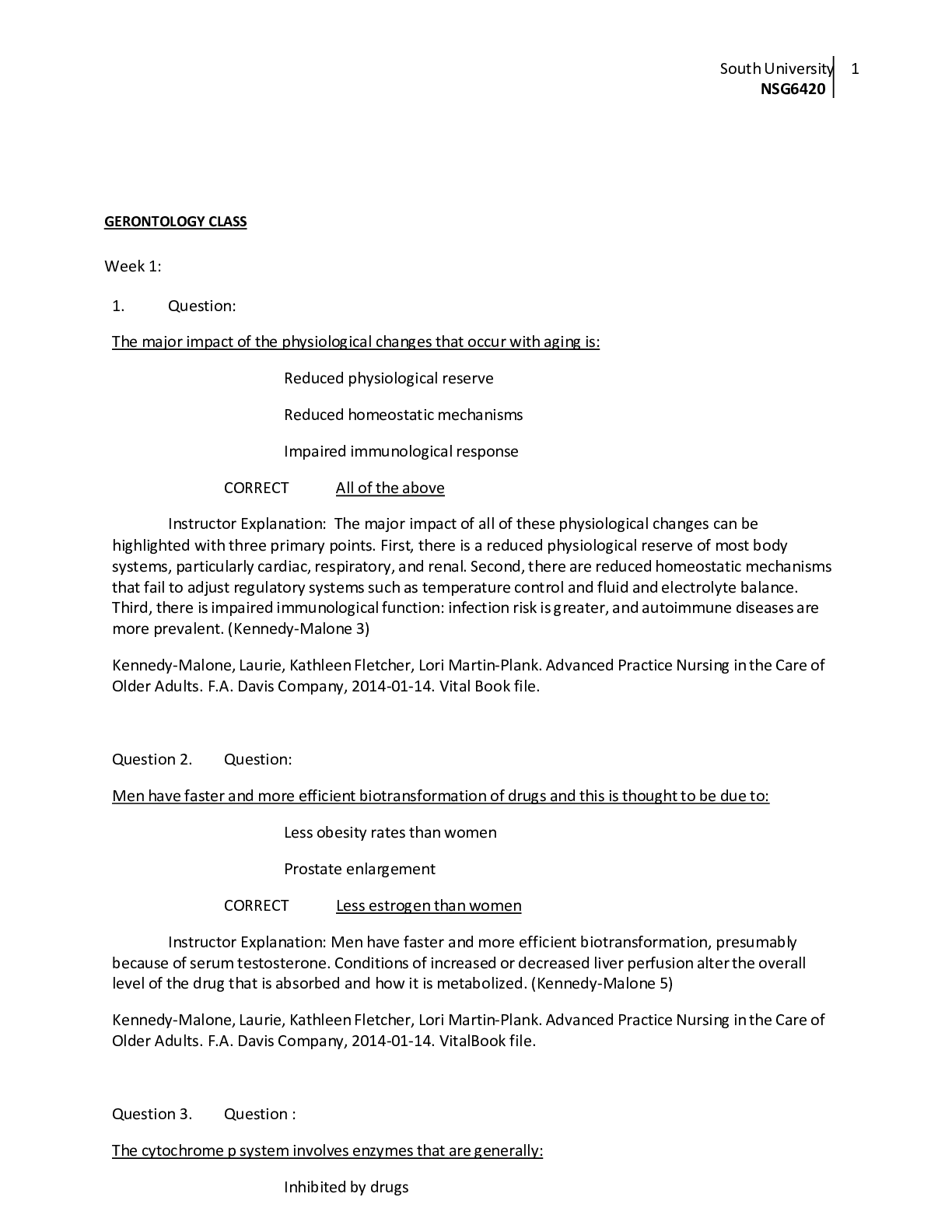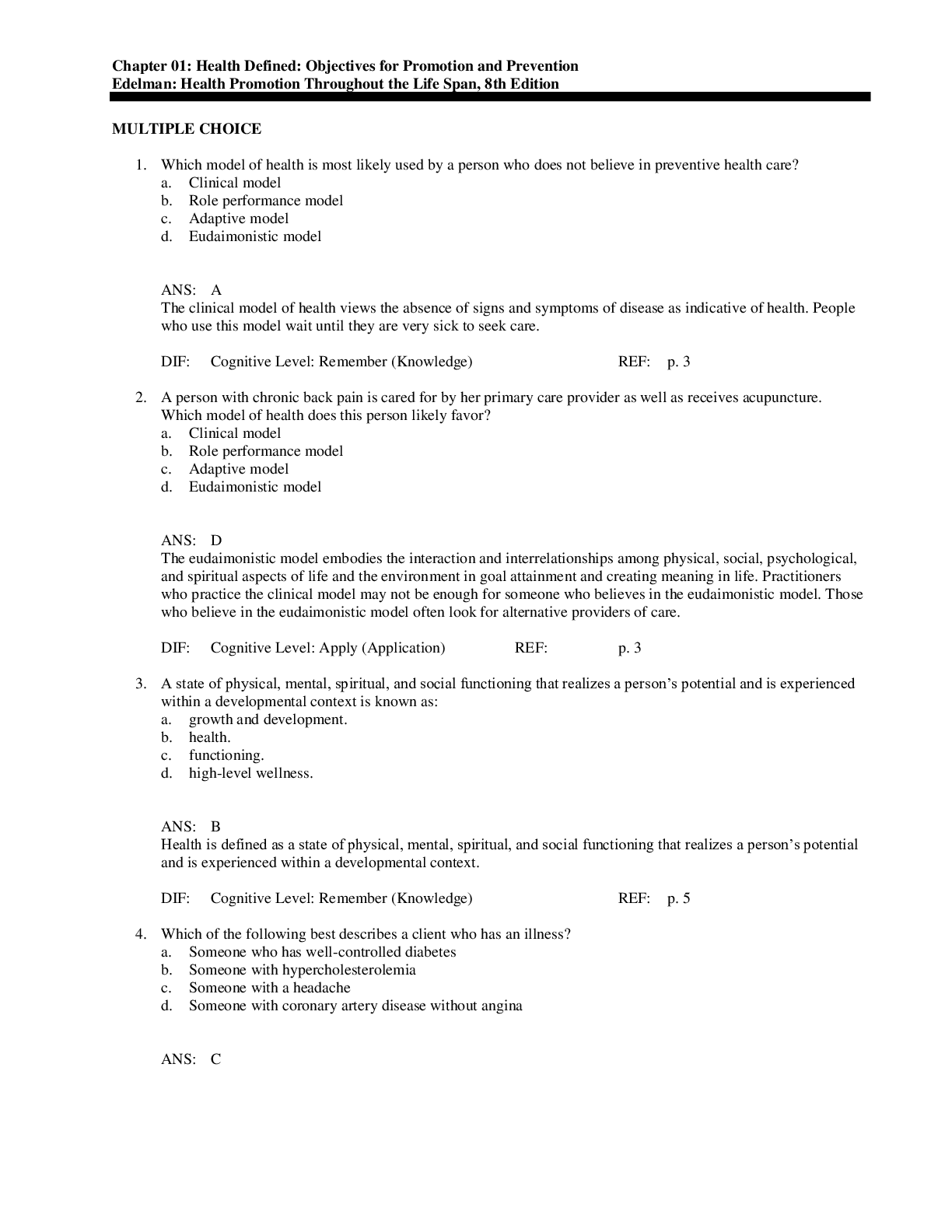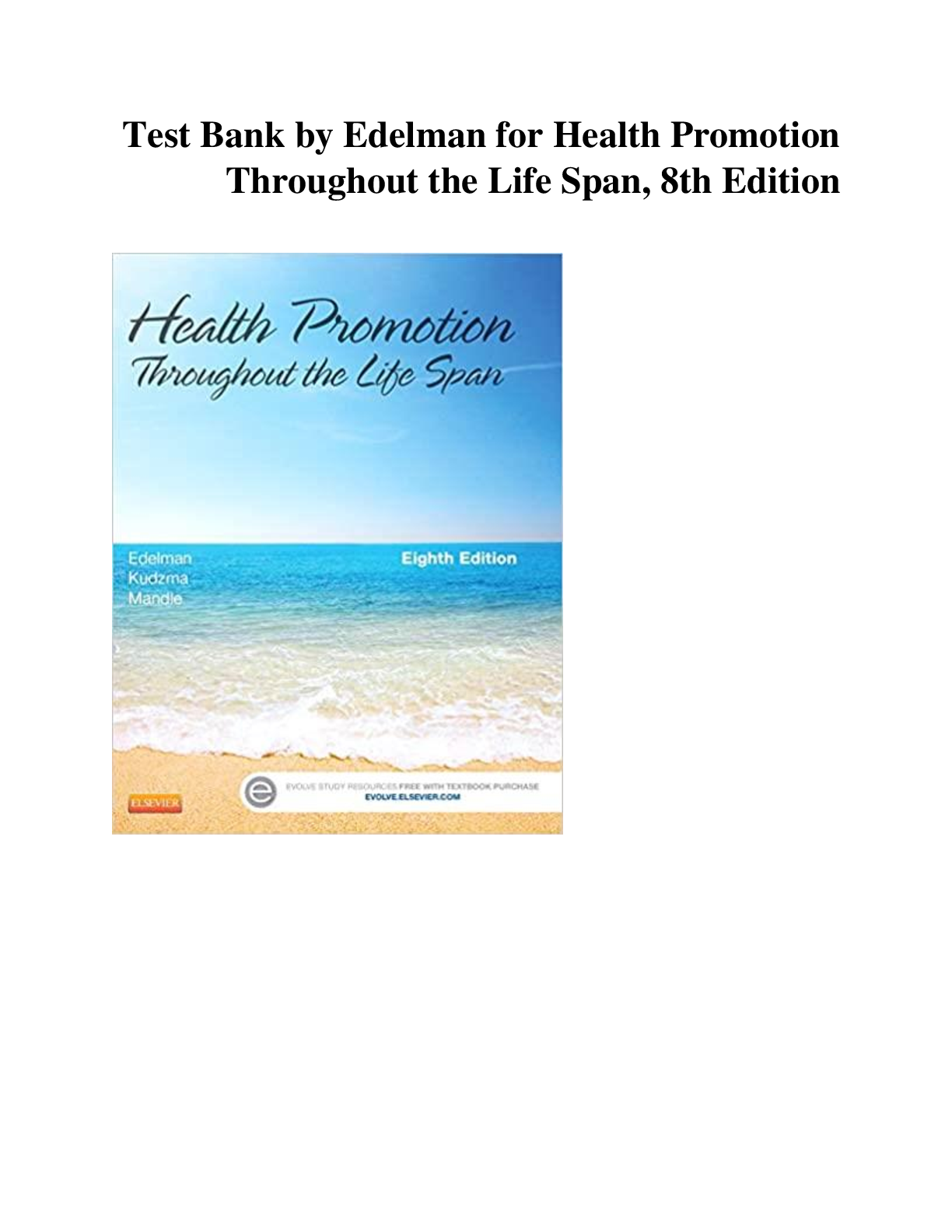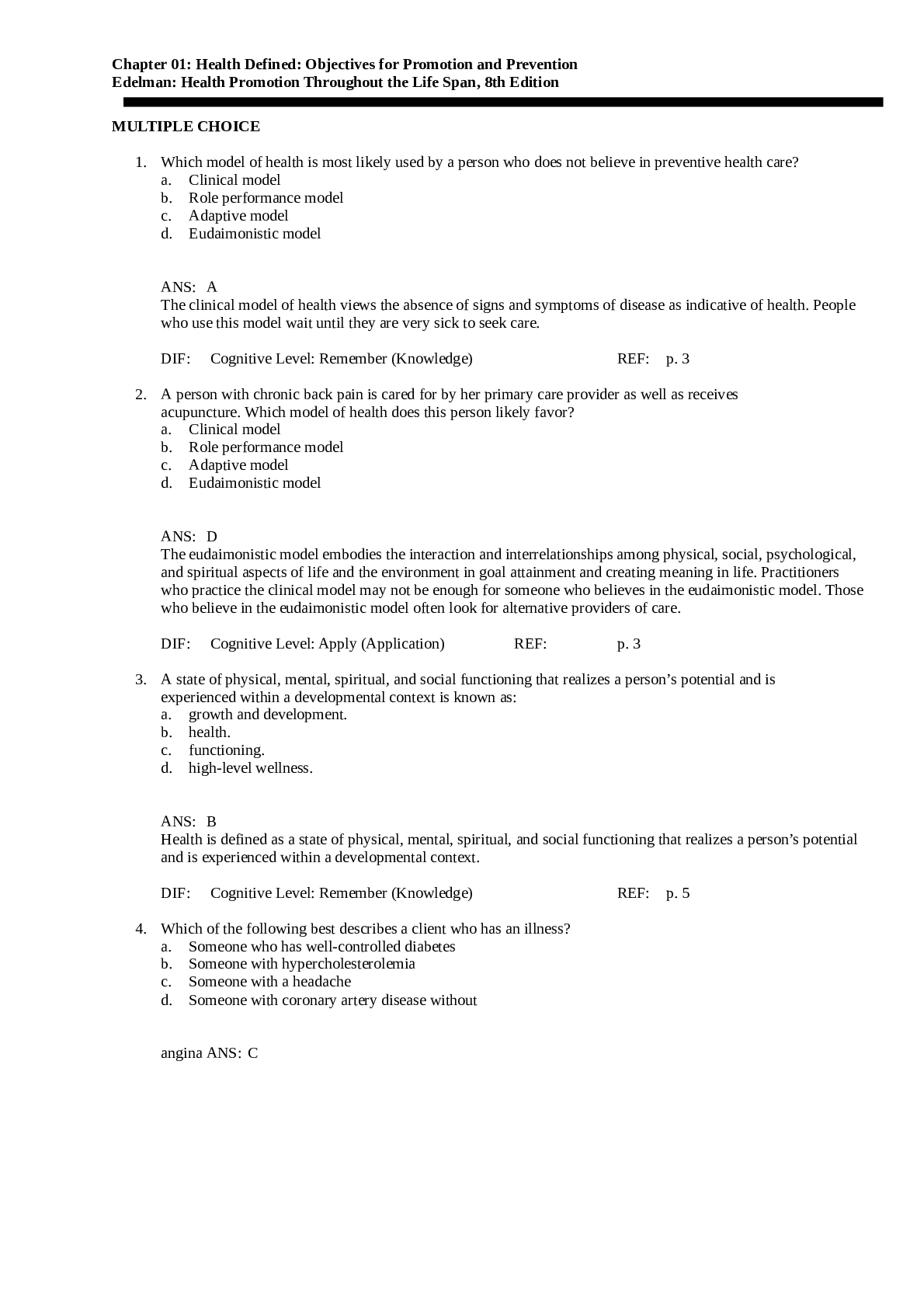*NURSING > QUESTIONS & ANSWERS > Chapter 01: Health Defined: Objectives for Promotion and Prevention Edelman: Health Promotion Throug (All)
Chapter 01: Health Defined: Objectives for Promotion and Prevention Edelman: Health Promotion Throughout the Life Span, 8th Edition
Document Content and Description Below
Chapter 01: Health Defined: Objectives for Promotion and Prevention Edelman: Health Promotion Throughout the Life Span, 8th Edition MULTIPLE CHOICE 1. Which model of health is most likely used b... y a person who does not believe in preventive health care? a. Clinical model b. Role performance model c. Adaptive model d. Eudaimonistic model 2. A person with chronic back pain is cared for by her primary care provider as well as receives acupuncture. Which model of health does this person likely favor? a. Clinical model b. Role performance model c. Adaptive model d. Eudaimonistic model 3. A state of physical, mental, spiritual, and social functioning that realizes a person’s potential and is experienced within a developmental context is known as: a. growth and development. b. health. c. functioning. d. high-level wellness. 4. Which of the following best describes a client who has an illness? a. Someone who has well-controlled diabetes b. Someone with hypercholesterolemia c. Someone with a headache d. Someone with coronary artery disease without 5. Which US report is considered a landmark document in creating a global approach to health? a. The 1990 Health Objectives for the Nation: A Midcourse Review b. Healthy People 2020 c. Healthy People 2000 d. The U.S. Surgeon General Report 6. Which of the following represents a method of primary prevention? a. Informational session about healthy lifestyles b. Blood pressure screening c. Interventional cardiac catheterization d. Diagnostic cardiac catheterization 7. Which of the following represents a method of secondary prevention? a. Self–breast examination education b. Yearly mammograms c. Chemotherapy for advanced breast cancer d. Complete mastectomy for breast cancer 8. Which of the following represents a method of tertiary prevention? a. Drunk driving campaign b. Road blocks for drunk driving c. Emergency surgery for head trauma after a motor vehicle accident d. Physical and occupational therapy after a motor vehicle accident with head 9. In reviewing a person’s medical claims, a nurse realizes that the individual with moderate persistent asthma has had several emergency department visits and is not on inhaled steroids as recommended by the NHLBI asthma management guidelines. The nurse discusses this with the person’s primary care provider. In this scenario, the nurse is acting as a(n): a. advocate. b. care manager. c. consultant. d. educator. 10. During a home visit, a nurse assists an individual to complete an application for disability services. The nurse is acting as a(n): a. advocate. b. care manager. c. consultant. d. educator. 11. During a home visit, a nurse discusses the dangers of smoking with an individual. In this scenario the nurse is acting as a(n): a. advocate. b. care manager. c. consultant. d. educator. 12. A nurse is asked to provide an expert opinion about the development of an education program for newly diagnosed diabetics. In this scenario, the nurse is acting as a(n): a. advocate. b. care manager. c. consultant. d. educator. 13. A nurse is planning to deliver an educational program to individuals with diabetes. Which of the following should be the initial action taken by the nurse to ensure the success of the program? a. Assess the motivation level of the individuals b. Assess the knowledge level of the individuals c. Establish teacher-learner goals with the individuals d. Establish multiple teaching sessions with the individuals 14. The conscientious, explicit, and judicious use of current best evidence in making decisions about the care of individuals is known as: a. health-related quality of life. b. evidence-based practice. c. a Healthy People 2010 goal. d. the ecological model of health. 15. Which research methodology should be used to address the question, “What is the difference in the infection rates between individuals who receive twice-a-day dressing changes versus once-a-day dressing changes?” a. Evidence-based practice research b. Qualitative research c. Quantitative research d. Clinical judgment research 16. The question, “What is the experience of teenagers who lose a sibling to cancer?” can best be answered by using which research methodology? a. Evidence-based practice research b. Qualitative research c. Quantitative research d. Clinical judgment research 17. A nurse who uses findings from a randomized, controlled trial on the care of Foley catheters to change practice at an institution is practicing: a. evidence-based medicine. b. qualitative research. c. quantitative research. d. clinical judgment. 18. Which of the following is most influenced by the social and economic environment of a community? a. Social health policies b. Quality of care c. Evidence-based practice d. Practice guidelines 19. A major cause of death in the early twentieth century was: a. cancer. b. cerebrovascular disease. c. heart disease. d. infections. 20. A mainstay of therapy for the management of chronic diseases is: a. lifestyle changes. b. occupational and physical therapy. c. medications. d. surgery. 21. Which of the following demonstrates a nurse taking action to promote health and prevent disease? a. Making a home visit to a person who is recovering from a heart attack b. Administering medications to a cardiac client in the hospital c. Providing cardiopulmonary resuscitation during a heart attack d. Educating a person about the advantages of a heart-healthy diet during a home visit 22. Which factor may have the most influence in changing the health behavior of a single, adult woman who smokes and is the care provider for her mother, her own children, and granddaughter? a. Education regarding effects of smoking on her health b. The satisfaction that she will not contribute to secondhand smoke c. The availability of a weekly support group d. A gift card for $10 to a local grocery store for every week she is smoke free 23. An example of a Hispanic American nurse promoting cultural competency is: a. providing translation services for all Hispanic Americans. b. focusing on episodic care of illnesses with Hispanic Americans. c. taking a class about the Hispanic American culture. d. providing care for all Hispanic American persons in her clinic. 24. The devaluing of beliefs, values, and customs of others is known as: a. ethnocentrism. b. racism. c. cultural competency. d. empathy. 25. Building a partnership with an obese individual who is trying to lose weight requires the nurse to: a. schedule a day to exercise with the individual. b. go grocery shopping for the individual. c. learn about the methods of weight loss. d. give the individual a weight loss goal. ........................................................CONTINUED.................................................................... [Show More]
Last updated: 2 years ago
Preview 1 out of 218 pages

Buy this document to get the full access instantly
Instant Download Access after purchase
Buy NowInstant download
We Accept:

Reviews( 0 )
$15.00
Can't find what you want? Try our AI powered Search
Document information
Connected school, study & course
About the document
Uploaded On
Apr 18, 2021
Number of pages
218
Written in
Additional information
This document has been written for:
Uploaded
Apr 18, 2021
Downloads
0
Views
93

